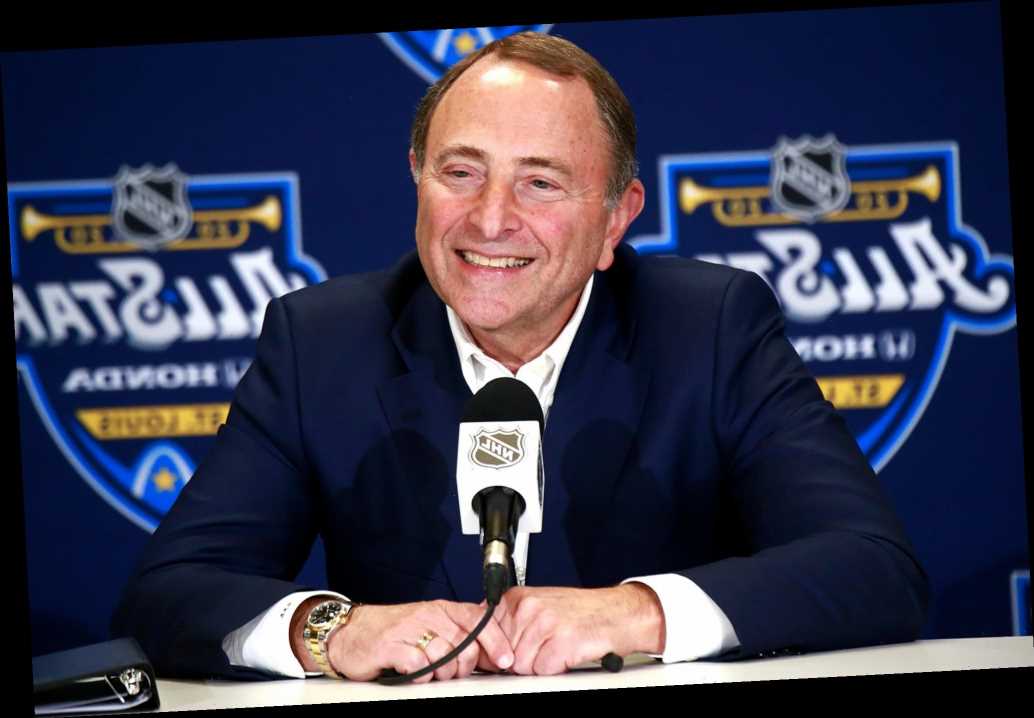It has not come up thus far in CBA talks between the NHL and NHLPA, we’re told by a trusted source, but a confluence of events could lead to an agreement between the parties to both participate in the Olympics and expand the playoffs.
First, the agreement between the league and union regarding the playoff format expires at the end of this season. Talk of extending or changing the current structure is expected to be joined by discussions about realignment. The NHL has proposed shifting Arizona from the Pacific into the Central Division in 2021-22 in order to accommodate Seattle’s entry into the league, and though that remains likely, the league will require the union’s approval in order to effect the move.
Meanwhile, Sixth Avenue is poised to soon open negotiations on its next U.S.-based television and media contracts, with the league’s current agreement with Comcast-owned NBC and NBC Sports Network scheduled to expire at the end of 2021-22. The NHL will seek multiple broadcast partners and platforms, including ESPN, next time around, just like every real major league in this country.
And what did we learn this week from Joel Sherman of our paper about Major League Baseball and their negotiations with broadcast entities? That expanding the playoffs by another four teams and one round (plus other preposterous bells and whistles) is at the top of the agenda for both parties. More teams, more elimination games.
We also know the IOC seems willing to bend its exclusionary policies and is willing to underwrite NHL costs to a significant extent in order to guarantee the league’s participation in 2022 at Beijing and beyond. But, of course, the Board of Governors, if not Gary Bettman himself, has appeared unimpressed with the policy of open arms.
The league has never presented a single metric supporting its amorphous claim that taking a three-week Olympic hiatus has had a negative impact on late-season business, but that’s the canard that’s been out there for years. Probably because it works as a cudgel to use in bargaining.
Listen, I think expanding the NHL tournament to add a couple of more teams per conference and thus adopt best-of-three play-ins that pit No. 7 vs. No. 10 and No. 8 vs. No. 9 is a terrible idea that would create even more of a lowest-common-denominator league. Good teams do not finish in 10th place. Don’t tell me about teams with 95 points that miss the playoffs. The addition of the loser’s point has skewed point totals beyond context.
Before the advent of the three-point game, the average NHL team would come in at 82 points (for an 82-game schedule). Simple. That was the context under which, say, a 95-point team could be measured. But last year, an additional 271 points awarded to overtime and shootout losers drove the league average to 90.7 points. So 95 points? Just slightly better than average.
Yes, I know, 16 of 21 teams made the playoffs through the ’80s. Four of six were in during the Original Six. Smoking was also allowed in all arenas back in those days. You could buy hot dogs, prepackaged ice cream sundaes that tasted like cardboard, peanuts, popcorn and carbonated soda at the concession stands. You really want to go back?
Plus, the two fault lines in the standings would be sixth place and 10th. The race for first place would be entirely overshadowed and devalued … unless, say, the division winners in each conference were in line to play five home games (Games 1, 2, 5, 6, 7) of the best-of-seven first round against the play-in survivors.
But regardless of whether expanding the playoffs is a good idea, players and management both might agree it makes sense if it guarantees higher revenue, greater exposure over broadcast and streaming platforms and an increased cap.
In that case, the PA might be able to create some leverage by agreeing to expand the playoffs in return for an agreement on the Olympics and an international calendar. No Olympics, no expanded playoffs. This would represent an imperfect solution, but it would solve the Olympic issue. Which would, if necessary, be worth the trade-off.
We talk of heroism on the ice within the context of competitive sports feats. But there was no context to the heroism displayed by medical personnel in Anaheim, who likely saved Jay Bouwmeester’s life when the 36-year-old Blues defenseman collapsed on his bench as a result of a cardiac episode during the first period of a game on Tuesday.
Yes, it would ultimately be Travis Zajac’s call, the Devils’ veteran center with one year remaining on his deal at $5.75 million per, owning a no-trade clause heading into the Feb. 24 deadline.
But does this current and presumably interim New Jersey management group led by Tom Fitzgerald and Martin Brodeur believe Jack Hughes’ development would be best served as third center next season behind Nico Hischier and Zajac, or that the teenager should be deployed in a top-six role?
Bruce Boudreau, who joins Peter Laviolette, Gerard Gallant and Mike Babcock as veteran coaches looking for work following his dismissal by the Wild on Thursday, has won an NHL career total of five playoff rounds while losing 10 in 13 years behind the bench with Washington, Anaheim and Minnesota.
The NHL held best-of-three preliminary rounds from 1975-79 in a 12-team playoff field that featured byes to the best-of-seven quarterfinals for division champs. Only one prelim round winner defeated a division champ over those five years — the 1978 Maple Leafs, who bullied the Islanders throughout the series before taking them out in Game 7 overtime at the Coliseum on Lanny McDonald’s goal.
The New York Yankees choose to play against … Phil Kessel.
This just in. Zack Kassian will spend his seven-game suspension for kicking Erik Cernak in the chest with his skate blade by giving lectures to Matthew Tkachuk on The Code.
Source: Read Full Article

